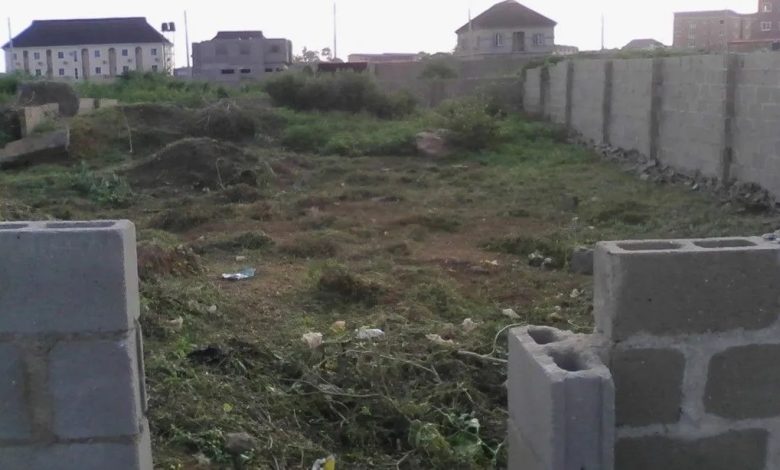
The word Landlord is a big word in the Nigerian space because it is considered a lifetime achievement to own a piece of land. Considering the numerous attendant benefits of owning a land, there is little wonder as to why anyone who becomes buoyant enough seeks to buy and own a land in Nigeria.
Land is a sure good way to make profits, especially for those in the real estate sector, whether it be bought for resale or development of housing units, however, as common as the need to buy a land is in the country, not everyone is equipped with the considerations that should be put in place before paying their hard-earned money for a piece of land.
This has made many fall victims to fraudsters and fake developers who swindle buyers by selling them non-existent vacant lands, or lands in locations with zero economic relevance.
To make the best decision in the purchase of land, there are six (6) basic things to be considered itemized below:
Budget
The first step for the buyer is to know the actual cost for the land and other additional important documentation that comes with the purchase of the land.
When this is properly researched, the intending buyer knows how best to budget for the land he or she wants to buy.
Some of the extra expenses that must be put into consideration when planning your budget are; legal fees: this is usually 5% of the cost of the land; Agency fees are also around 5% of the cost of the land; survey plan: depending on your choice of location, it is usually in the range of N100,000 to N300,000; and also the cost of getting all the required documents such as Certificate of Occupancy (C of O), Governor’s consent etc. from the government.
Read Also: Many trapped as Mall Collapses in Abuja
Land Size
While experienced professionals may be used to land sizes and measurements, some first-time intending owners get confused as to the various measurements.
There are different land sizes and these sizes also play vital roles in the prices of a land. Professionally, lands are basically measured in acres, plots, and hectares.
An acre is much bigger than a plot and is the standard unit of measurement used by most land sellers. In terms of measurement, it is the product of a rectangle plot of land that is about 4,046 square meters or 43,560 square feet. An acre usually consists of 6 plots, each measuring about 60 x 120ft. However, an acre is roughly 40% of a hectare.
A plot is an arbitrary term used to describe a land division set out for developmental purposes, the size of a plot may vary for different reasons but according to Nigeria’s land division, the recommended plot for house construction is 50 x 100ft.
The hectare is the largest of the three sizes. A hectare measures about 100m x 100m, or 328 feet x 328 feet, or 10,000 square meters. A hectare is about two and a half acres which are usually about 15 plots. The size of a hectare has been a bone of contention between prospective buyers and real estate developers.
It is important to note that though plots, acres and hectares are standard measurements, factors like land location, possession, and circumstances leading to the transaction, there are different variations in measurements.
Location
Location is a very big determinant of the cost of land. It should be a major consideration when budgeting for the land.
In the world of real estate, the location plays a vital role in the overall value of the land. It should be noted that the value of a land is different from the price of the land at the time of purchase as value incorporate other factors such as future sale value, potential growth of the area, proximity to infrastructures and amenities amongst others.
Purpose of Land Purchase
The question is, what is the major reason for purchasing the land? The purpose of buying a land should also greatly influence the decision of purchase. As land can be used for various reasons such as agriculture, building construction, direct re-sale, setting up of industry, it is on the intending buyer to check if the land in question satisfies his or her need.
Documentations
Most times, people fall victim to land fraud and fail to get the necessary documentation for the land or sometimes some of these documents are faked by fraudulent sellers.
Buying land without getting the necessary documents is a recipe for disaster so a prospective buyer must first investigate if the seller in question has the legal authority to sell the land.
It is essential you ask for the proof of ownership from the seller before carrying out any transaction and if such cannot be provided, chances are, it is a fraudulent transaction.
It is also in the same vein that you must ensure you have all the documents required after the transaction, in order to avoid unnecessary issues with the government or land grabbers.
It is best advice to seek the help of a legal practitioner at this point.
Documentation of purchase
It is important to make all efforts to identify a good land that suits your purpose, hiring professionals to authenticate the documents can easily be wiped away if an intending buyer fails to document the purchase of the land.
As much as possible, avoid the use of cash for land purchases, so as to ensure electronic traceability.
Also, you must ensure everything is properly documented from the cost of the land to the receipt of survey fees.
Lastly, it is also paramount to engage a lawyer in order to prepare a purchase receipt in which all parties can sign to acknowledge payments through any of the bank channels.
This cancels the possibility of a seller denying the exact amount paid, when it was paid and for the purpose it was paid, and yes, that extra charge of the lawyer is totally worth it.




